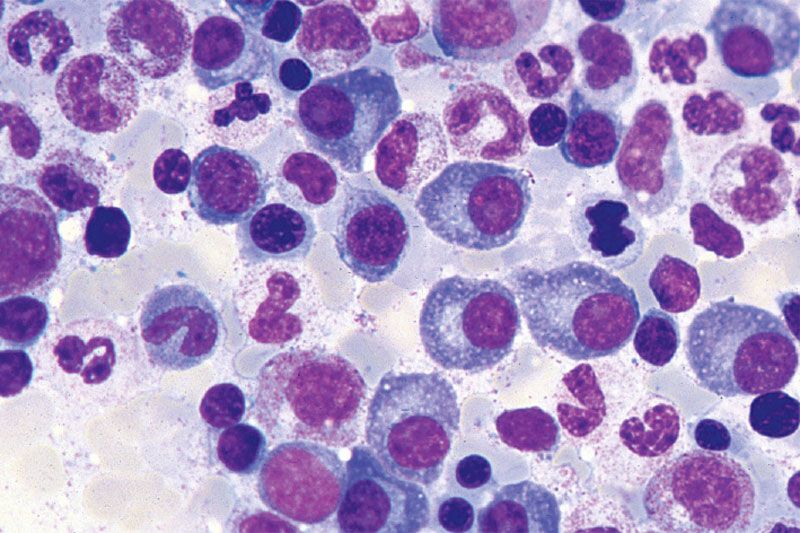Multiple myeloma is a form of cancer that impairs the body’s ability to combat infections. This blood cancer presents a range of potential symptoms. The CRAB test is employed to diagnose multiple myeloma, with doctors assessing for elevated levels of calcium in the blood (C), potential kidney issues (R), a low red blood cell count or anemia (A), and bone pain (B), which may include osteoporosis among other complications.

Bone Complications
Multiple myeloma can severely affect bones. Osteoporosis can be a consequence of this condition, causing bones in the body to become increasingly brittle over time.
Bone pain is a common manifestation, and individuals with multiple myeloma may experience discomfort in the ribcage, hips, back, and other areas.
Nervous System Challenges
The nervous system can be significantly impacted by multiple myeloma. Those dealing with this cancer may encounter general weakness or numbness in their body, particularly in their legs. Muscle weakness may follow, along with severe back pain.
Additionally, symptoms resembling a stroke, such as dizziness, confusion, and slurred speech, may occur in more severe cases.
Kidney Complications
A blood/urine test can detect kidney problems. Inadequate kidney function leads to incomplete filtration, resulting in symptoms such as shortness of breath, swollen legs, and overall weakness.
Elevated calcium levels can cause excessive thirst, dehydration, abdominal pain, loss of appetite, frequent urination, drowsiness, and potentially severe constipation.
